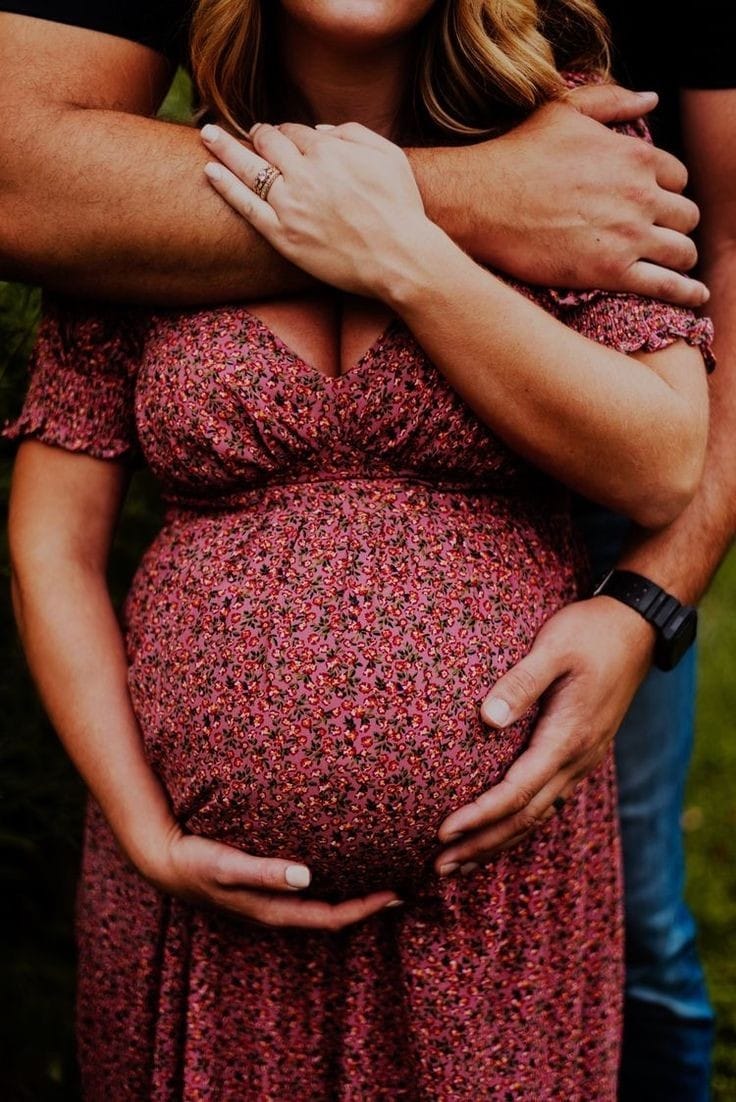
From the perspective of a therapist and healer, the relationship between pregnancy and mental health is complex and multifaceted. Pregnancy can affect mental health in numerous ways, so it’s important to approach this topic carefully. Based on current research and clinical data, a significant proportion of women experience mental health challenges during pregnancy. What about before and after? As a therapist and healer. I have observed both partners experiencing and coping with mental health issues in their own ways and sadly very little is spoken on men’s mental health. It’s also because very few men openly talk about it. The mental health of expectant and new fathers is often overlooked in discussions about pregnancy and parenthood. When a woman goes through this difficult patch before, during or after, most of the time she is not alone, nor is the partner but the family goes through it also. It’s all energy, we are all energy – just like we breathe the same air, and if there is a virus in the air, it affects us differently depending on our immune system. The air of Mental health affects us depending on what previous or current baggage we carry. This gap in attention and support can have significant consequences. Let’s explore this topic:
-
Hormonal changes: Women
- Pregnancy causes significant hormonal fluctuations that can influence mood and emotions.
- Some women may experience improved mood due to increased levels of certain hormones.
- Others may be more susceptible to mood swings or depressive symptoms.
-
Psychological impacts: Both Parents
- For some, pregnancy can bring a sense of purpose, joy, and anticipation.
- It can also lead to anxiety about impending parenthood, health concerns, or life changes.
-
Perinatal mental health disorders: Both parents
- Some women may develop or experience worsening conditions like depression, anxiety, or bipolar disorder during pregnancy.
- Perinatal depression affects about 10-20% of pregnant couples (unrecorded % is much more).
-
Social and relational changes: Both parents
- Pregnancy often leads to shifts in relationships and social and financial dynamics, which can impact mental well-being.
- Support from partners, family, and friends can positively influence mental health during pregnancy.
-
Pre-existing mental health conditions: Both parents
- Women with pre-existing mental health issues may need to adjust their treatment during pregnancy.
- Some may experience improvements, while others might face challenges managing their condition.
-
Post-partum period: Both parents
- While not directly related to pregnancy, the postpartum period can significantly affect mental health.
- Postpartum depression and anxiety are common concerns that require attention and support.
It’s crucial to note that pregnancy affects each person differently. While some may experience positive mental health effects, others may face challenges. Therapies and prenatal care are important for monitoring and addressing any mental health concerns before, during and after pregnancy. Not only the first 5 years are very important for a growing child, but the time even before one plans a child, the parent’s
mental health has a direct impact on the child. As our body remembers everything. And this everything is what the baby feeds on.
Did you know that 80% of pregnancies are unplanned? Taking care, eating right, and maintaining a healthy lifestyle are all planned and implemented later. Now you know why this responsibility is not just for mothers, but for fathers as well.
Now let’s go deeper and understand why pregnancy therapy and healing are important. “Besides food, do you know what else nourishes your child?”
This is where hypnotherapy and energy healing sessions can help you go to the core, address your issue and start the healing process. “It not only heals your past, present, and future. But most importantly, it heals you of your issues, stress, and anxiety, and brings a change inside out. Womb cleansing and healing release imprints and stuck energy not only from this lifetime, past lives but from generations. it helps you connect with the child, prepares you to have a healthy strong body, helps you be healthy emotionally and mentally, and cuts patterns, curses, promises, and any suppressed emotion that you have been carrying for generations without knowing, making it lighter for future generations.”
Parents not only give their goodness to their child but also unaddressed trauma, childhood issues, beliefs, anger, fear, fights and abusive relationships, suppression, stress, and pressure to have kids, saying “Have a child, things will get better.” The biggest mistake a couple can make is bringing a child into a relationship without first resolving their differences, issues, and concerns. This decision only passes on all the baggage to the child. What happens when you do this? The child carries the parent’s baggage along with his/her baggage. As a couple, you get so busy dealing with the pregnancy and the child’s growing up years that your troubles and issues are all suppressed and still not addressed, only coming out as outbursts, and more than you know, it’s on your child and each other. This is also childhood trauma!
What you don’t want your life to be is what exactly opposite you are silently teaching your child unknowing. We always say “Oh, he/she is just like his father or mother, wonder where he/she has learnt this, it’s in the DNA”. Think where is it coming from.
Healing/therapy before, during, and after works beautifully for the couple, and especially the mother, as she is the nurturer. As a caregiver, she needs to be emotionally, mentally, and physically well taken care of, and for her to be in that state, the father also needs to be in a great state. (As sperm quality matters, it is directly linked to your emotional, mental, and physical health.)
Imagine this: If you want a tree to produce healthy fruits, you do various things like tending to its growth, watering it, providing manure, fencing it, removing the weeds, spraying, pruning, and cutting off dried leaves and branches. Why not do the same for yourself? It’s important to take care of yourself so that you grow stronger and healthier, just like the tree, and bear healthy and happy “fruits.”
Caring for oneself and as a parent during pregnancy requires a holistic approach that encompasses physical, mental, and emotional health.
If you’re pregnant or planning to become pregnant kindly pay attention to your physical, mental and emotional wellness. And what are you handing over to the next generation?
